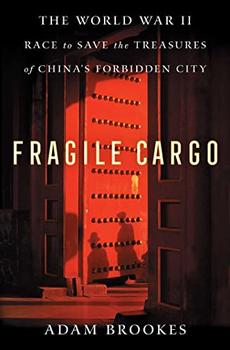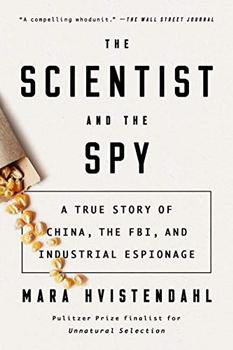Summary | Excerpt | Reviews | Beyond the book | Read-Alikes | Genres & Themes | Author Bio

The Fantastic Story of the Eccentric Scientist Who Unlocked the Mysteries of the Middle Kingdom
by Simon WinchesterThe Man Who Loved Chinatells the sweeping story of China through the remarkable life of Joseph Needham's , a brilliant Cambridge scientist . Here is an unforgettable tale of what makes men, nations, and, indeed, mankind itself great—related by one of the world's inimitable storytellers.
In sumptuous and illuminating detail, Simon Winchester, brings to life the extraordinary story of Joseph Needham, the brilliant Cambridge scientist who unlocked the most closely held secrets of China, long the world's most technologically advanced country.
No cloistered don, this tall, married Englishman was a freethinking intellectual, who practiced nudism and was devoted to a quirky brand of folk dancing. In 1937, while working as a biochemist at Cambridge University, he instantly fell in love with a visiting Chinese student, with whom he began a lifelong affair.
He soon became fascinated with China, and his mistress swiftly persuaded the ever-enthusiastic Needham to travel to her home country, where he embarked on a series of extraordinary expeditions to the farthest frontiers of this ancient empire. He searched everywhere for evidence to bolster his conviction that the Chinese were responsible for hundreds of mankind's most familiar innovations—including printing, the compass, explosives, suspension bridges, even toilet paper—often centuries before the rest of the world. His thrilling and dangerous journeys, vividly recreated by Winchester, took him across war-torn China to far-flung outposts, consolidating his deep admiration for the Chinese people.
After the war, Needham was determined to tell the world what he had discovered, and began writing his majestic Science and Civilisation in China, describing the country's long and astonishing history of invention and technology. By the time he died, he had produced, essentially single-handedly, seventeen immense volumes, marking him as the greatest one-man encyclopedist ever.
Both epic and intimate, The Man Who Loved Chinatells the sweeping story of China through Needham's remarkable life. Here is an unforgettable tale of what makes men, nations, and, indeed, mankind itself great—related by one of the world's inimitable storytellers.
The reader may also find that he or she is craving more information about China, the Chinese people and China's history than the author delivers. Make no mistake: This is a book about Needham, not about China. It's a bit frustrating that the focus of the book is so narrow. Winchester does, however, do what he set out to: Provide a detailed account of one remarkable man's extraordinary life. Fans of Winchester's writing and those who enjoy pure biographic works may find much to like about his most recent book...continued
Full Review
 (480 words)
(480 words)
(Reviewed by Kim Kovacs).
Joseph Needham's travels in China took place during the latter half of the
conflict known as the Second Sino-Japanese War - the largest war to take
place in Asia during the 20th century (map
of Asia).
The seeds of the conflict were sown during the First Sino-Japanese War
(1894-1895), at the end of which China ceded Taiwan and Korea to Japan, and
the Qing dynasty was substantially weakened (a factor that led to its collapse
in 1912 and the rise of the Republic of China). Hostilities continued
intermittently in the northern part of China until 1931, when Japan conquered
Manchuria setting up a puppet government in what they called Manchukuo.
Battles continued between the two nations, with Japan acting as the aggressor.
...

If you liked The Man Who Loved China, try these:

by Adam Brookes
Published 2023
The gripping true story of the bold and determined museum curators who saved the priceless treasures of China's Forbidden City in the years leading up to World War II and beyond.

by Mara Hvistendahl
Published 2021
A riveting true story of industrial espionage in which a Chinese-born scientist is pursued by the U.S. government for trying to steal trade secrets, by a finalist for the Pulitzer Prize in nonfiction.
Failure is the condiment that gives success its flavor
Click Here to find out who said this, as well as discovering other famous literary quotes!